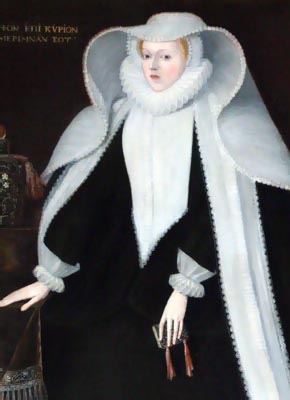Thomas Hoby facts for kids
Quick facts for kids
Sir Thomas Hoby
|
|
|---|---|
| Ambassador of the Kingdom of England to France | |
| In office 1566–1566 |
|
| Preceded by | Nicholas Wotton |
| Succeeded by | Sir Nicolas Throckmorton |
| Personal details | |
| Born | 1530 |
| Died | 13 July 1566 (aged 35–36) Paris, France |
| Spouses | |
| Relations | Sir Philip Hoby (brother) Peregrine Hoby (grandson) |
| Children | 4, including Edward, Thomas |
| Parents | William Hoby Katherine Forden Hoby |
| Residence | Bisham Abbey |
| Alma mater | St. John's College, Cambridge |
Sir Thomas Hoby (born 1530 – died 13 July 1566) was an important English diplomat and translator. He was known for his travels and for bringing important European ideas to England through his translations.
Early Life and Travels
Thomas Hoby was born in 1530. He was the second son of William Hoby from Leominster, England. His mother was Katherine Forden Hoby. He had important family connections; for example, his wife's sister was married to William Cecil, a very powerful minister to Queen Elizabeth I.
In 1546, Thomas Hoby began studying at Cambridge University. His older half-brother, Sir Philip Hoby, who was also an ambassador, encouraged him to travel. Thomas visited many countries, including France and Italy. He even explored parts of Italy like Calabria and Sicily, which was unusual for an Englishman at that time.
His travels were very extensive and helped him learn many languages. A famous scholar named Roger Ascham said that Thomas Hoby was "well furnished with learning, and very expert in knowledge of divers tongues" (meaning he was very educated and good at many languages). His long trip through Italy was like an early version of what later became known as the "Grand Tour," where young people traveled to learn about European culture.
Career as a Translator and Diplomat
Sir Thomas Hoby was famous for his translations. He translated a book by Martin Bucer called Gratulation to the Church of England in 1549.
His most famous translation was Il Cortegiano (The Courtier) by Baldassare Castiglione, which he published in 1561. This book was incredibly popular in England and became one of the most important books of the English Renaissance. It taught people, especially gentlemen during the time of Queen Elizabeth I, how to behave and live a refined life. Reading The Courtier helped people understand the new, elegant ways of Renaissance society. It gave them an idea of what a truly developed person should be like, someone who was both ethical and full of character.
In March 1566, Queen Elizabeth I made him a knight in Greenwich. Soon after, he was sent to France as the English Ambassador. When he arrived in Calais, France, a soldier shot at the English flag. Sir Thomas Hoby demanded an apology for this insult, and after some time, he received it.
Family Life
On June 27, 1558, Thomas Hoby married Elizabeth Cooke. Elizabeth was the daughter of Sir Anthony Cooke and was a good friend of Queen Elizabeth I. After they married, they lived at Bisham Abbey in Berkshire.
They had two daughters who sadly died young, and two sons who both later became knights:
- Edward Hoby (1560–1617): He married Margaret Carey, whose father was a cousin of Queen Elizabeth I.
- Thomas Posthumous Hoby (1566–1640): He became a Member of Parliament.
Sir Thomas Hoby died in Paris, France, on July 13, 1566. He was buried at Bisham, where his wife built a monument to remember him and his half-brother, Sir Philip Hoby. His wife, Elizabeth, later remarried in 1574.
Images for kids
-
Portrait of Hoby's eldest son, Edward, in 1583
 | Chris Smalls |
 | Fred Hampton |
 | Ralph Abernathy |



